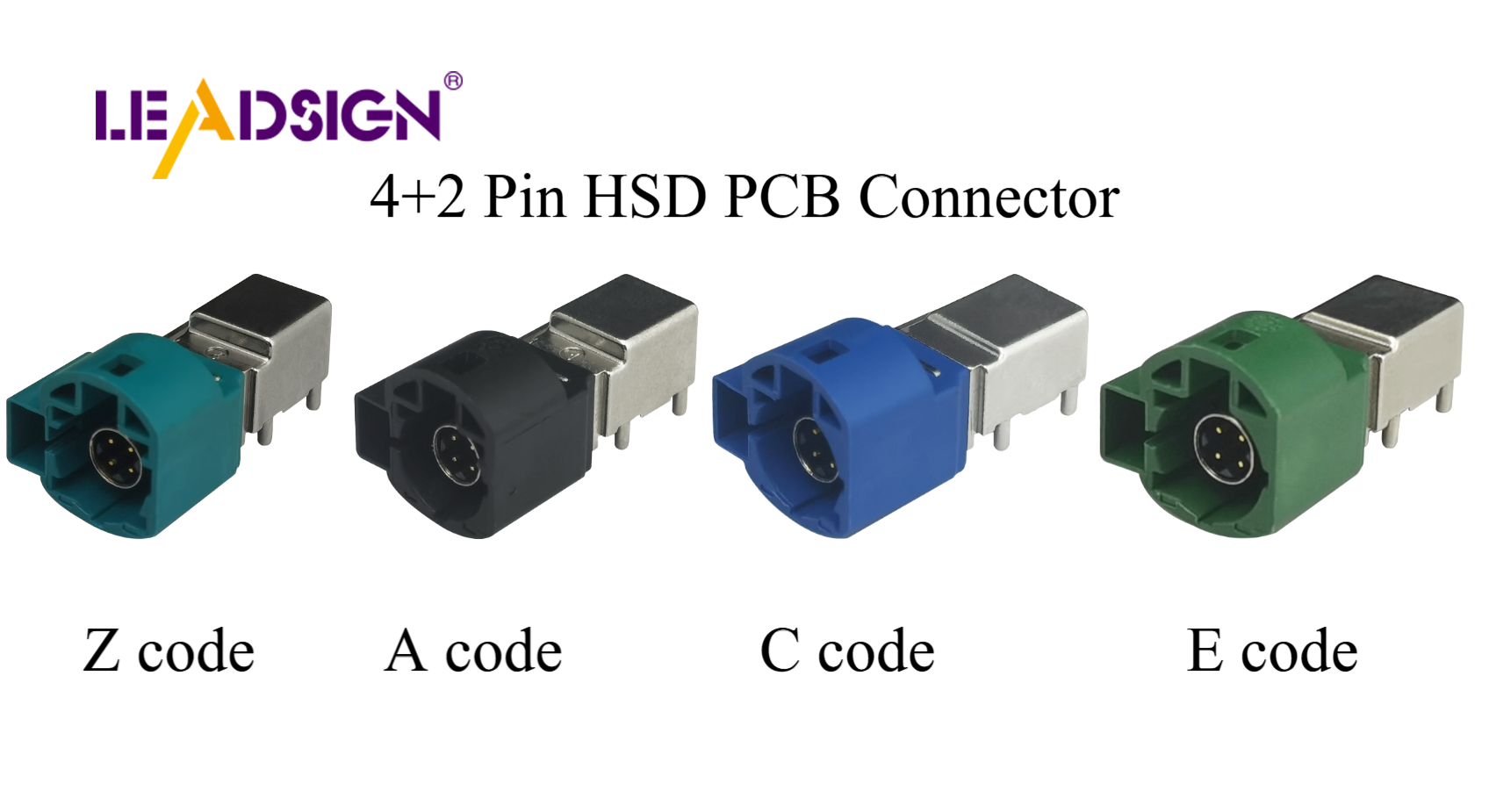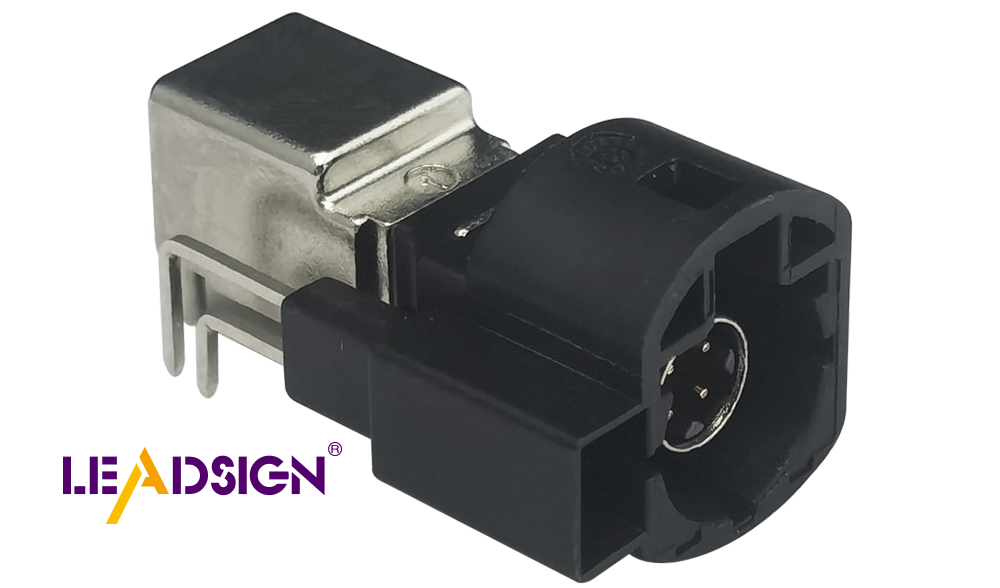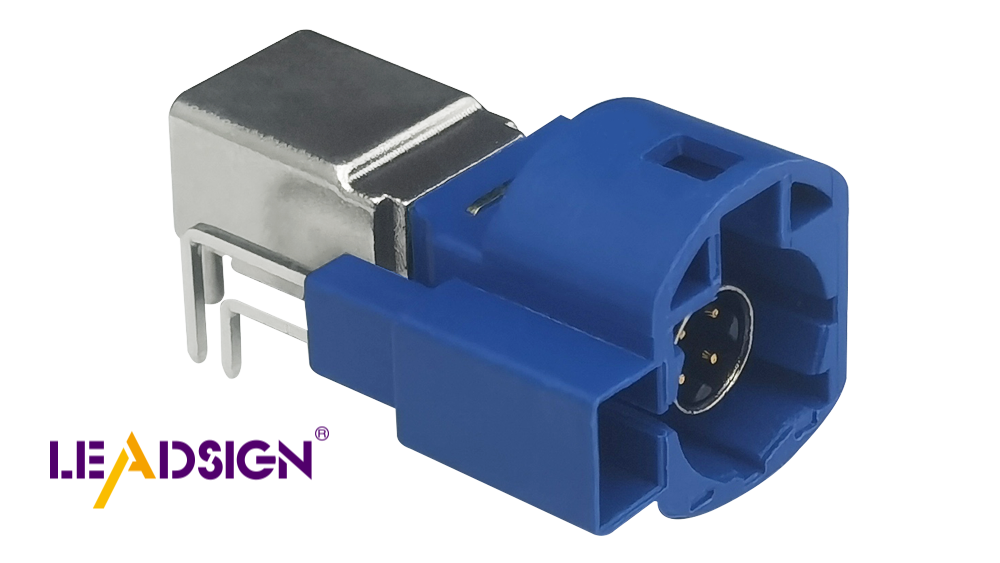Exploring Automotive Networking with Plugs and Connectors

Automotive plugs and connectors are key parts of modern vehicles. They help make smooth electrical connections for systems to work well. They power important tasks and support safety features in cars. These parts are crucial for how well your car works. The worldwide market for automotive plugs and connectors is growing fast. It is expected to reach $38.68 billion by 2031. They send power and data reliably, making them essential for today's smart car technology.
Key Takeaways
Automotive plugs and connectors are essential for ensuring smooth electrical connections, powering critical systems, and enhancing vehicle safety.
Different types of connectors, such as board-to-board, wire-to-board, and multi-pin sealed connectors, serve specific functions to support vehicle performance and technology.
Using high-quality connectors improves reliability and durability, allowing vehicles to perform well in harsh conditions and extend their lifespan.
Sealed connectors protect against environmental factors like water and dust, ensuring that safety systems and electronic components operate effectively.
Choosing certified connectors that meet industry standards guarantees safety and compatibility with modern automotive technologies.
Regular maintenance and inspection of connectors can prevent issues and enhance the overall performance of your vehicle.
As automotive technology evolves, connectors play a crucial role in supporting advanced features like electric powertrains and smart safety systems.
Types of Automotive Plugs and Connectors

Automotive connectors come in many types for different vehicle needs. They help parts communicate well, keeping systems running smoothly. Below are some common types and their important uses.
Board-to-Board Connectors
Board-to-board connectors connect printed circuit boards (PCBs) inside vehicles. They stack PCBs neatly, making them great for small spaces. These connectors work well with different PCB setups and tight areas. They are used in systems needing fast data transfer, like infotainment and ADAS. Their accurate links help electronic parts talk to each other easily.
Wire-to-Board Connectors
Wire-to-board connectors are popular because they are very useful. They connect wires to PCBs, helping parts share power and data. You’ll find them in power systems, body electronics, and safety features. They stay secure even in tough conditions. For example, they link sensors and actuators to ECUs, keeping vehicle functions smooth.
Wire-to-Wire Connectors
Wire-to-wire connectors join two wires directly for steady electricity flow. They connect ECUs, sensors, and actuators, which are key for cars. Their strong build makes them perfect for engine systems and lights. These connectors keep important parts working together, improving your car’s performance.
Multi-Pin Sealed Connectors
Multi-pin sealed connectors help make strong and safe connections in cars. They have many pins to send power and data between systems. Their sealed design keeps out water, dust, and heat or cold. This makes them perfect for important parts like ECUs, lights, and ADAS.
These connectors are used where strength and accuracy are needed. For example, they link sensors and actuators to main systems for smooth operation. Their tough build and ability to handle many tasks make them very useful. Using these connectors keeps your car's systems working well, even in tough conditions.
Terminal Connectors
Terminal connectors are one of the most common car connectors. They connect electrical parts like fuses, batteries, and sensors. These connectors keep electricity flowing for your car to work properly. Their simple design makes them easy to use and fix.
They are often used in power systems to link batteries and alternators. They also help safety systems by connecting sensors to control units. This ensures quick actions during emergencies. Terminal connectors are built to handle shaking and stress, making them last a long time. Adding these connectors improves your car's safety and performance.
Uses of Automotive Plugs and Connectors in Automotive Applications

Making Sure Electrical Systems Work Well
Automotive connectors help your car's electrical parts work properly. They create strong links so power and data can move easily. For example, sealed connectors keep water, dust, and rust away from circuits. This helps your car work even in bad weather or rough conditions.
In tough jobs like engines or off-road vehicles, strong terminals are very important. These terminals keep connections steady during shaking and extreme weather. Using good connectors means your car will work well on smooth roads or bumpy trails.
Helping Safety Features Work
Connectors are important for keeping your car safe. They connect sensors, cameras, and controls for safety systems like airbags and ABS. For example, multi-pin sealed connectors send data accurately while keeping out dirt and water. This helps safety systems act fast in emergencies.
Terminals also help safety by linking batteries and fuses to key parts. These links make sure power gets to important systems without stopping. Strong connectors let safety features work well, keeping you safe while driving.
Supporting New Car Technology
Modern cars use advanced technology, and connectors make it possible. They help infotainment, navigation, and electric car parts by sending power and data quickly. For example, sealed connectors are made for digital systems, keeping devices connected smoothly.
In electric and hybrid cars, connectors handle high-voltage systems and batteries. They can handle heat, cold, and shaking, making them great for tough jobs. With advanced connectors, car makers can build vehicles with the latest technology for a better driving experience.
Key Features and Design Considerations of Automotive Connectors
Durability and Longevity
Car connectors must handle tough conditions inside vehicles. They need to work well even with shaking, heat, or chemicals. Makers use strong materials to make them last a long time. For example, some connectors use special materials that don’t wear out easily. This keeps your car working in hot or cold weather.
Car terminals are also made to be strong. They handle steady electricity without breaking down. Their tough design keeps power and data flowing smoothly. Choosing strong connectors and terminals helps your car run well for years.
Environmental Resistance
Car connectors deal with harsh weather every day. They must block water, dirt, and heat to work right. Sealed connectors are great at this. They stop moisture and dust from getting in, keeping things running. This is very helpful for cars used in wet or rough places.
Car terminals are also made to resist chemicals like oil or coolant. This stops rust and keeps connections working well. Using connectors with good protection makes your car more reliable in hard conditions.
Compliance with Industry Standards
Car connectors must follow strict rules for safety and performance. Certified ones are tested to ensure they work with car systems. These tests prove they can handle modern car tech like electric cars and safety systems.
Car terminals also meet these rules, giving safe and steady connections. Using certified connectors ensures your car works safely and smoothly. This also helps add new technology to your vehicle.
Car plugs and connectors are important for today’s vehicles. They help systems work well and connect with new technology. Their strong build handles heat, cold, and shaking without failing. New materials, like lightweight and rust-proof ones, make them last longer. As cars get smarter and more connected, these parts improve safety and performance. Picking good connectors helps your car stay reliable and work better for a long time.
FAQ
What are automotive connectors, and why are they important?
Automotive connectors join electrical systems in your car. They help send power and data between parts like sensors and lights. Without them, cars wouldn’t work properly. These connectors keep systems connected and reliable.
How do automotive connectors support vehicle safety?
Connectors help safety systems like airbags and ABS work well. They send signals and power between sensors and controls for quick actions. Sealed connectors block water and dust, keeping systems reliable in all conditions.
What types of automotive connectors are commonly used?
There are many types of automotive connectors:
Board-to-board connectors link circuit boards.
Wire-to-board connectors join wires to boards.
Wire-to-wire connectors connect wires directly.
Multi-pin sealed connectors are strong and weatherproof.
Terminal connectors link batteries, fuses, and sensors.
Each type has a specific job to keep systems running smoothly.
How do connectors handle harsh environments?
Connectors are made to survive tough conditions. Sealed ones block water, dirt, and debris. Strong materials resist heat, cold, and chemicals like oil. This keeps them working well in bad weather or rough driving.
Can connectors improve the performance of electric and hybrid vehicles?
Yes, connectors are key for electric and hybrid cars. They handle high-voltage systems and battery power. Their strong design manages shaking and temperature changes, making them great for advanced car tech.
What role do connectors play in modern car technology?
Connectors make advanced features like navigation and ADAS possible. They send data quickly between devices, helping systems work together. This makes driving safer and more enjoyable.
How do I choose the right automotive connector?
Pick connectors based on your car’s needs. Look for ones that are strong, weatherproof, and fit your systems. Certified connectors meet safety rules and work best with your car.
Are automotive connectors easy to maintain?
Yes, most connectors are simple to care for. They are built to last and easy to replace. Checking them often helps find problems early, keeping your car reliable.
Do connectors affect fuel efficiency?
Yes, in a small way. Good connectors help systems work better, saving energy. In electric cars, they help batteries last longer by using power efficiently.
How do connectors contribute to the future of automotive technology?
Connectors are key to new car technology. They help smart systems, self-driving features, and electric engines work together. By linking parts, they make cars safer, smarter, and more efficient.
See Also
Discovering How Fakra Connectors Enhance Automotive Performance
Improving Data Flow in Vehicles with Advanced Connectors
Transforming Vehicle Connectivity Through HFM Connector Benefits
Boosting Data Transfer Efficiency with High-Speed Connectors

